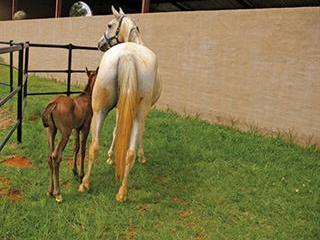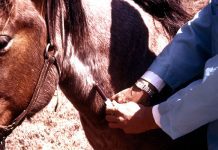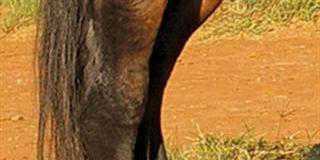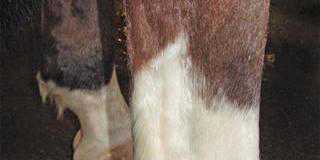
There is nothing wrong with looking for ways to cut your horse’s feed bill, so long as you don’t compromise your best friend’s health. With feed costs skyrocketing, everyone involved in keeping livestock is searching for economical ways of keeping their animals healthy. The good news, according to a study conducted in France, is that brood mares on good quality veld do not need extra concentrates to maintain their weight or the weight of their foals.
Researchers placed 6 mares in fields with good quality grass. They were monitored for four months. The group was then split in half. Eight mares were fed a concentrate of 60% energy, while the rest received no concentrate at all. After this, the researchers infested all 16 mares with roundworms to gauge their ability to fight off infection. The mares were weighed regularly and their bodies scored for condition. Parasite load tests were also performed regularly.
Little variation between groups
Although both test groups had spent 15 hours a day in the meadow, the mares that had only had grazing ate 12% more grass than the eight that had also received concentrates. There was little variation in the individual weight of the horses in both groups until the end of the study period. It was then found that the mares that had been fed concentrates had lost more weight and had higher parasite loads. This was despite the fact that immunity did not seem to vary between the two groups.
When the foals were compared, it was noted that both groups followed the same growth curves. Complementary feed thus seems to have no effect on veld-fed horses. Horses are trickle feeders – they must have food constantly moving through their system. Moreover, they thrive on good quality roughage.
Parasites
Instead of worrying about supplements, focus on de-worming regularly to help decrease parasite loads. MSM (methylsulfonylmethane) has been shown to help decrease parasite loads as well as aid in the absorption of nutrients.
Be sure to change your de-wormer to suit the different worm cycles and prevent worms from becoming resistant to one product. Dose according to the weight of your horse.
To reduce the chances of problems in the first place, dip your horse to get rid of ticks, pick up droppings in the paddocks and spray the horse for flies. Also, check its teeth every six months. Annual general health checks are recommended; your vet will get to know your horse and you can rest assured that it is healthy.













